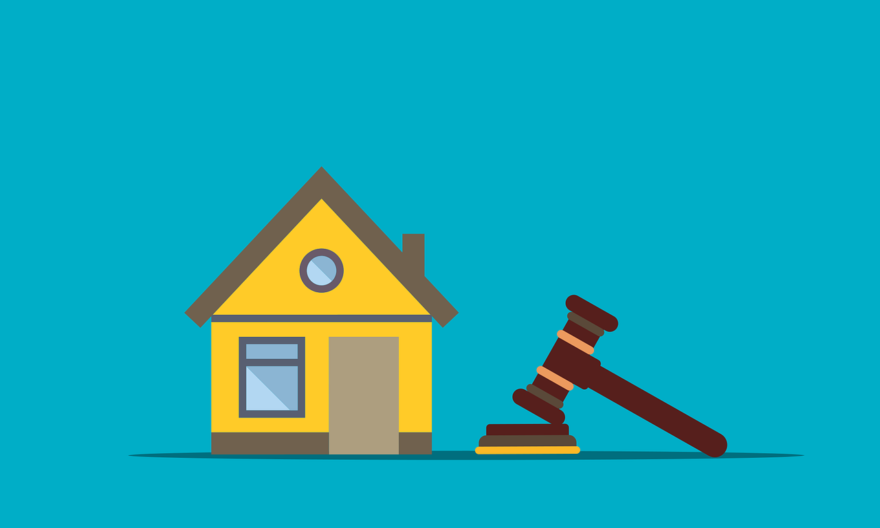
Purchasing a property at auction is growing in popularity and there’s a wider choice on offer. With a speedy home-buying process and the chance to bag a property bargain, it’s not hard to see why. Auctions can be a great way to buy a property, but there are also some risks involved.
Buyers can have huge success with auction properties. But, without proper planning, it could potentially become a nightmare, so it’s important to be prepared. Here are some of the advantages and disadvantages of buying a property at auction.
How does buying at auction work?
Because buying at auction is becoming more common, bidding is also becoming more competitive, so it’s important to know how the auction process works.
Here are some of the basics:
Step 1 – Get all the information
First and foremost, get all the information you need about the properties that are available by contacting the auction house. The listings are usually released a few weeks before an auction, including a guide price. There might also be a reserve price, which is the minimum the seller would be willing to accept, but this information is normally confidential.
Next, make sure you register with the auction house, which is normally done online by filling in some or your personal details. Before bidding on a property, you should arrange a viewing and get a property survey done, as the surveyor can check if there are any serious structural issues or other repairs needed. You should also carefully read through the legal pack, as this will contain some of the conditions of the sale and other important information.
2 – Decide what you’re willing to spend
After looking at your chosen property, you need to decide what your price limit is. Consider what you can realistically afford and do some research to find out how much similar properties have sold for in the area. It can also be worth getting an independent valuation carried out.
3 – Go through the auction process
The next step is to go to the auction and bid on your chosen property. On the day, make sure you show up early and take all the paperwork that the auction house requires. This varies, but normally includes photo ID, proof of address, and proof of funds. As well as bidding in person, most auction houses now allow remote bidding, either online or by proxy.
During the bidding process, always listen out for any last-minute changes to the listing and if you do bid, make sure your bids are clear so they can be easily identified. Lastly, try not to get carried away on the day when you’re bidding on the property. Instead, always stick to your budget so you don’t end up paying more than you can actually afford.
Advantages of buying a house at auction
Here are some of the main advantages of buying a property at auction:
- It’s a great way to get a bargain. It’s possible to get a house at a price that wouldn’t be possible if you went through a real estate agent – sometimes 10-20% lower.
- The process is much faster. You can complete the entire process of buying a property within 28 days of the auction as it is chain free and the sale is legally binding.
- A lot of the properties need renovation, which means there are opportunities for property investors and other buyers to add value and make a profit with a project.
- There’s more transparency as you can see other potential buyers’ bids yourself.
- Unlike other methods of buying property, there’s no pressure to get your offer in first.
- The seller can’t pull out of the deal as the contracts are signed as soon as the auction is finished. This also means no lengthy delays due to communication issues.
Disadvantages of buying a house at auction
Although there are benefits to buying a property at auction, there are also some downsides:
- A higher percentage of properties for sale at auction are “problem properties” with structural problems, short leases, or legal restrictions, and this can make it riskier.
- Although some problems with the property might be obvious, there could be others that are harder to spot, so buyers need to be more cautious and check thoroughly.
- There’s less time for buyers to think about their options and make decisions than when buying through an estate agent, as the process moves much more quickly.
- Once you’ve made a commitment in the auction room, it can be very difficult (and often incredibly expensive) to back out of the sale if you change your mind.
- There are fewer choices and fewer properties available at auctions than other methods.
- If your bid is successful, the funds need to be available immediately.
- It can be easy to go over budget on the day, so it’s important not to get carried away.
- If you don’t win, you’ve lost the time and money spent on surveys and legal advice.
The best ways to protect yourself
If you’re considering buying a property at auction, it’s important to be aware of the risks so you can take steps to protect yourself. For example, there can sometimes be hidden fees and charges, so you should check this before the auction so you can adjust your budget.
Another thing to consider is that the house could have a multitude of different problems. As auction properties are more likely to be repossessions, this means the owner couldn’t afford their mortgage or taxes, and could also be that routine maintenance and repairs weren’t done.
To deal with this, make sure you get a survey carried out on the property and get an estimate for the costs so you can ensure that the repairs are affordable and worthwhile. You should also seek legal advice to check for any ongoing disputes or issues with the property.
Lastly, buying a property at auction requires a lot of cash, usually immediately. Make sure you check in advance what the rules are when it comes to financing, as different auction houses have different requirements and the regulations vary between countries and regions.



